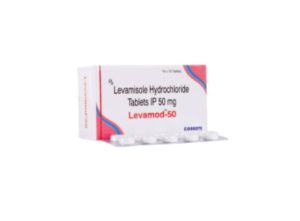
Erythromycin Overview
Erythromycin is a macrolide antibiotic that inhibits bacterial protein synthesis by binding to the 50S ribosomal subunit. It is bacteriostatic but can be bactericidal at higher concentrations or against certain organisms. It is effective against a broad spectrum of gram-positive and some gram-negative bacteria. Erythromycin is particularly useful in patients who are allergic to penicillin or in treating infections resistant to other antibiotics.
Brand Names and Formulations
Erythromycin is available in various formulations and dosages, including:
- Erythrocin
- Erythroped
- E.E.S. (Erythromycin Ethylsuccinate)
- Ilosone
- PCE
Common formulations include:
- 250 mg and 500 mg tablets.
- Oral suspension: 200 mg/5 mL or 400 mg/5 mL.
- Injectable forms (for IV administration): Varying concentrations depending on clinical need.
- Topical forms: Often used for acne.
Uses/Indications
Erythromycin is used to treat a variety of bacterial infections, including:
- Respiratory Tract Infections: Such as pneumonia, bronchitis, and pertussis (whooping cough).
- Skin and Soft Tissue Infections: Including impetigo, cellulitis, and acne.
- Ear Infections: Otitis media and otitis externa.
- Sexually Transmitted Infections (STIs): Including chlamydia and syphilis in patients allergic to penicillin.
- Gastrointestinal Infections: Such as infections caused by Campylobacter jejuni and Helicobacter pylori.
- Prevention of Rheumatic Fever: In patients allergic to penicillin.
- Ophthalmic Infections: Neonatal conjunctivitis (ophthalmia neonatorum) caused by Chlamydia or Neisseria gonorrhoeae.
Dosage
- Adults:
- Oral: 250-500 mg every 6 hours (or 500 mg every 12 hours with enteric-coated tablets).
- IV: 15-20 mg/kg/day, divided into doses every 6 hours.
- Children:
- Oral: 30-50 mg/kg/day, divided into doses every 6-8 hours.
- For Acne (Topical):
- Applied 1-2 times a day, depending on the formulation (gel, ointment, or lotion).
- Specific Doses for Indications:
- Pertussis: 40-50 mg/kg/day divided into 4 doses, for 7-14 days.
- Chlamydia in Neonates: 50 mg/kg/day divided into 4 doses for 14 days.
Side Effects
Common side effects include:
- Gastrointestinal Effects: Nausea, vomiting, abdominal pain, and diarrhea. Erythromycin is known to stimulate gastrointestinal motility.
- Allergic Reactions: Rash, pruritus, and, in rare cases, anaphylaxis.
- Liver Toxicity: Erythromycin has been associated with cholestatic hepatitis, especially with prolonged use.
- Cardiac Effects: Can cause QT prolongation and increase the risk of arrhythmias, particularly torsades de pointes.
- Hearing Loss: Reversible hearing loss has been reported with high doses, particularly in patients with renal impairment.
- Superinfection: Long-term use can result in overgrowth of non-susceptible organisms, such as fungi.
Contraindications
Erythromycin is contraindicated in:
- Allergy to macrolides.
- Concurrent use of drugs that prolong the QT interval, such as certain antiarrhythmics (e.g., amiodarone, sotalol), antipsychotics, and certain antifungals (e.g., ketoconazole).
- Severe Liver Disease: Due to its association with cholestatic hepatitis.
- Myasthenia Gravis: Erythromycin may exacerbate muscle weakness.
- Concomitant use with ergot alkaloids: Erythromycin increases the risk of ergot toxicity.
Drug Interactions
- CYP3A4 Inhibitors: Erythromycin is a potent inhibitor of the cytochrome P450 enzyme system, especially CYP3A4, which can lead to increased levels of drugs metabolized by this pathway, such as:
- Warfarin: Increased risk of bleeding.
- Theophylline: Increased risk of toxicity.
- Carbamazepine: Increased levels and risk of toxicity.
- Statins (e.g., simvastatin, atorvastatin): Increased risk of rhabdomyolysis.
- Calcium Channel Blockers (e.g., verapamil, diltiazem): Increased risk of hypotension or shock due to interaction with erythromycin.
- Digoxin: Erythromycin may increase digoxin serum concentrations.
- Antacids: Decrease the absorption of erythromycin, reducing its efficacy.
Special Considerations
- QT Prolongation: Patients with a history of cardiac disease or those taking other QT-prolonging medications should be monitored closely.
- Liver Monitoring: Patients on long-term therapy or those with pre-existing liver conditions should have liver function tests regularly.
- Renal Impairment: Dose adjustments may be required, particularly for IV formulations.
- Pregnancy and Lactation: Erythromycin is generally considered safe in pregnancy (Category B) but should be used with caution during breastfeeding.
- Macrolide Resistance: Overuse of erythromycin can lead to resistance, particularly in organisms like Staphylococcus aureus and Streptococcus pneumoniae.
Conclusion
Erythromycin is a versatile antibiotic useful in treating a range of infections, particularly in patients allergic to penicillin. Despite its efficacy, it comes with potential side effects, especially gastrointestinal discomfort, liver toxicity, and QT prolongation. Special care is required when prescribing erythromycin to patients with underlying cardiac or liver conditions, and drug interactions should be carefully monitored due to its inhibition of the CYP3A4 enzyme system.







